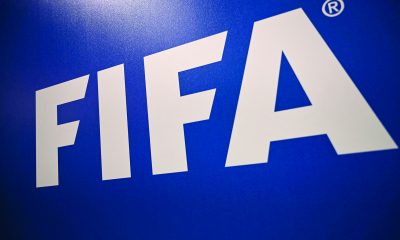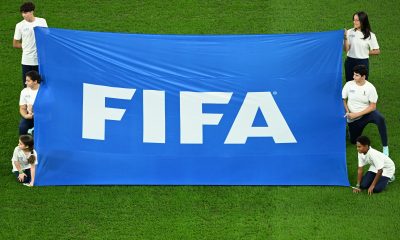
Just over a year ago, the sports industry was thrown into a complete uncertainty.
Similar to what was being experienced in other areas, the sporting industry worldwide started to feel the ravaging and unforeseen effects of the COVID-19 pandemic across its sporting spectrum.
Sporting competitions started to be postponed or cancelled in their entirety, fans found themselves prevented from attending those few events that still went ahead and athletes and officials found themselves in a surreal and at times career-defining moment.
Associations and clubs were scrambling to firstly understand what impact COVID-19 would have on their operations and secondly how to adapt to the repercussions of such virus without causing too many disruptions.
Due to the virtually unknown effects of the virus back in March 2020, sporting competitions virtually grounded to a halt across the globe, causing sporting organisations, athletes and officials to make huge financial losses from the lack of income across the sporting spectrum.
Over time, sport governing bodies, in consultancy with public health authorities, started to draft safe medical return to play protocols that contained stringent rules to ensure that sporting competitions could return in a safe playing environment for all involved.
Athletes had to start adapting to playing in front of empty stadiums, fans had to adjust to watching their favourite sports/athletes from the comfort of their living rooms and those who were impacted from a lack of income generating activities had to brain storm alternative ways how to bring in much needed income.
Major sporting competitions were all postponed to 2021, with the respective organisers at the time all banking on a healthier year to allow such competitions to take place in a safe environment and to hopefully be held just like previous editions.
With the majority of major sporting competitions scheduled to take place during the upcoming summer months, doubts still linger as to whether or not such competitions will get underway owing to the ongoing COVID-19 pandemic and restrictions across the globe.
Should they proceed as planned, they will likely take place in a surreal environment.
One devastating effect caused by the COVID-19 pandemic, which are still felt today, is the financial repercussions caused by the virus.
Income revenue
Clubs have seen their income revenue take a sharp nosedive due to a drastic decrease in merchandise sales and gate money, yet at the same time seeing their expenses remain relatively unaffected.
Furthermore, corporate sponsors have either scaled back their sponsorship budgets or cancelled same in their entirety.
Such an effect has had a greater effect on smaller clubs and lesser-established athletes, however even large teams have felt the pinch when releasing their financial reports for year-end 2020.
The effects of the virus have also undoubtedly taken a psychological toll on athletes and sporting officials.
Some athletes have had their dreams to qualify for the Olympic Games shattered, others feeling the effects of not being able to integrate with their team-mates or fans or having to spend long periods of time away from their families/loved ones due to the ‘bubble’ principle.
Not knowing when one can return to playing in front of sell-out crowds, thousands of jobs being at risk, and athletes who depend on sponsor income, having to find alternative sources of funding to achieve their dreams and advance in their respective careers, have all taken a hit on the psychological wellbeing of such individuals.
Studies have already shown that the virus impacts being faced in the sporting industry may represent a major career insecurity to many athletes worldwide, and may lead to severe changes to everyday lives and potentially prolonged psychological distress.
Given the long-term perspective of these changes, calls have already been made for researchers and stakeholders to address mental health and long-term job insecurity in athletes, including a specific focus on those with small financial margins, amongst them athletes in smaller sports and athletes from developing countries
The daunting task of concurrently managing fan expectations, ensuring minimal operational disruptions, seeking much-needed income and attempting to plan ahead in an unknown future is not a task for the fainthearted.
All those involved in the sporting sector must continue to invest in alternative fan engaging mechanisms, such as e-sports, and find alternative innovative income generating means, all of which should be optimised to the fullest ability.
Besides being of key physical importance, sports also brings together millions of people from different backgrounds and unites them over one common factor – the passion for sports.
Sports for many is more than just the game itself; it provides important aspects to one’s social life and has a meaning that goes far beyond scores and performance statistics.
Sports endured both World Wars and the 1918 flu pandemic. One only hopes that it will also overcome the COVID-19 pandemic.

World Cup News
-
FIFA World Cup
/ 4 weeks agoSon scores but Thailand hold South Korea in World Cup qualifier
Son Heung-min scored but South Korea were held 1-1 at home by Thailand in...
By AFP -
FIFA World Cup
/ 1 month agoJapan-N. Korea World Cup game to stay in Pyongyang, JFA says
Japan’s World Cup qualifier against North Korea will be played in Pyongyang as planned...
By AFP -
FIFA World Cup
/ 2 months agoGerman ex-FA bosses on trial over World Cup tax evasion
Three German ex-top football officials went on trial on Monday in a 13.7-million-euro ($14.8...
By AFP -
FIFA World Cup
/ 2 months agoSaudi Arabia formally launches bid for 2034 World Cup
Saudi Arabia formally launched its bid to host the 2034 World Cup on Friday,...
By AFP

Winter Olympics
Watch: Geisenberger wins sixth Olympic medal to tie luge record



































